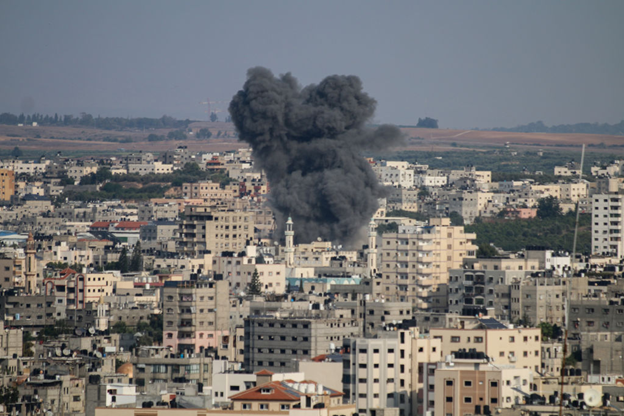By Marc Ramsingh
It’s been less than month since the terrorist group known as Hamas launched a surprise attack, involving an estimated 2,200 rockets in the direction of southern and central Israel from the Gaza Strip.
Following the initial airstrike, Hamas militants stormed toward Israel’s southern half on motorcycles, foot, and makeshift aircraft. Mohammed Deif, commander in chief of Hamas’ military arm, took credit.
There are a couple of theories for what prompted Hamas to attack. Some think Hamas used all of its available resources to temporarily disable a portion of Israel to foment Israel to counter-attack Gaza. Hamas could have taken the role of an unofficial Palestinian protector seeking revenge on Israel and subsequently the West.
Where we stand now is a declaration of “war” according to Israeli Prime Minister Benjamin Netanyahu. Israel will continue a powerful counter-offensive in the Gaza Strip in an attempt to eliminate as much of Hamas as it can, sending a message not to attack again.
The surprising part is the small manpower that Hamas has, using it all for one terrorist attack. Hamas was motivated to launch the attack because of an Israeli policy that did not favor Palestinians. The most recent was a violent Israeli attack at the Al-Aqsa Mosque and the expansion of Israeli settlements.
What’s the United States to gain?
The United States is Israel’s biggest ally. President Biden recently stated that while Hamas must be eliminated, Palestine should have a path to its statehood.
The United States, as the keeper of peace in the world, aims to keep the status quo via support for Israel by having a presence in the region physically and symbolically. President Biden’s visit to Israel on October 18th demonstrated support. American ships are standing by right off the coast of Israel.
The United States also has another motive in the region. There are 13 Americans in the region, and we are unsure whether they be injured, killed, or kidnapped. Hamas did kill and kidnap US citizens during the initial attack.
The U.S. is expected to continue providing diplomatic, economic, and possible intelligence support to Israel. President Biden also cited reputable intelligence regarding a hospital bombing in Gaza, attributing it to Hamas and suggesting they framed Israel to prompt a ceasefire.
The ongoing Israel-Hamas conflict has several implications for the United States. Due to the differing views on the Israeli-Palestinian conflict the U.S. will face criticism from some allies and organizations for its strong support of Israel. This is shown with a UN vote where the US vetoed a vote for a humanitarian pause in the conflict, Ambassidor Linda Thomas-Greenfield stated “This resolution did not mention Israel’s right of self-defense.”
Middle Eastern countries play a key role in the global economy and more so the energy sector. This newly found instability will lead to increased oil prices, impacting the global economy. The instability seen during Russia’s invasion of Ukraine had a comparable effect on oil prices. The United States aims to stabilize energy markets amid these concerns.
The Hamas-Israel conflict has destabilizing implications for the Middle East. It restarts a cycle of violence, causing casualties and increasing regional tension. This ongoing conflict fuels existing tension between Israel and its neighbors, with extremists operating in nearby nations. Diplomatic efforts and regional cooperation are slowed, taking resources from socio-economic development and political reforms.
Photo Courtesy // Ahmad Hasaballah






